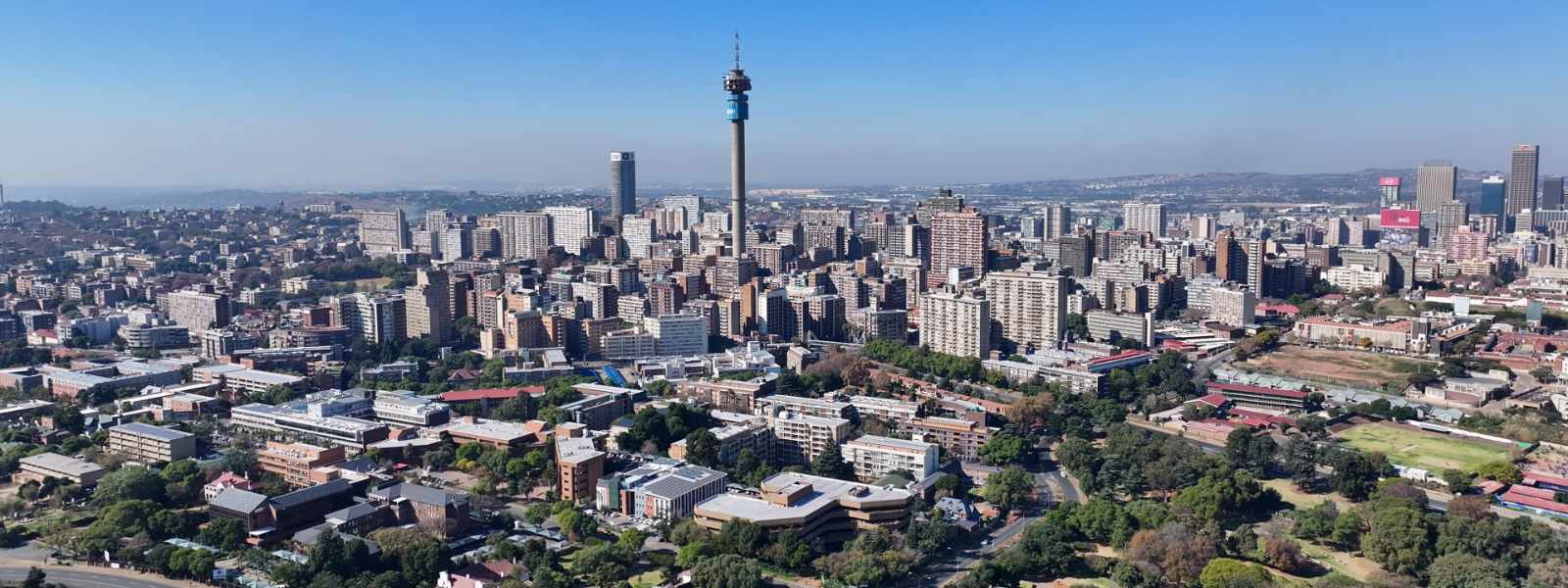
Two teams of Civil and Environmental Engineering students have been selected for the prestigious 2025 Grand Finals of the ‘Engineering for People Design Challenge’.
Run by Engineers Without Borders, the Challenge uses project-based learning to immerse students in real-world contexts. They work collaboratively on sustainable solutions addressing engineering issues within a specific geographic context, enabling them to develop skills, including collaborative problem-solving, ethical decision-making and cultural sensitivity.
This year, the competition focused on the community of ‘Makers Valley’, a collection of city suburbs on the eastern edge of inner Johannesburg, South Africa. Home to around 46,000 people, the historically economically disadvantaged area has rich cultural diversity but has also suffered from urban decay and high unemployment rates.
Flood mitigation
The two Strathclyde teams selected to the finals are Civil and Environmental Engineering third year students. Keara Dunford, Ellie Patrick, Grace Tremlett, Morven Duncan and Nathan Deane, tackled flooding in Makers Valley with their ‘GymPump’ design, which provides a flood mitigation solution and also boosts community well-being. The reviewers praised their approach, which they felt reflected an inclusive engineering mindset that aimed to foster local ownership and participation.
The second team of Samuel Rice, Callum Dalrymple, Aiden Darvell, Josh Darvell, and James Towns focused on improving cycling infrastructure, prioritising safety, mobility, and accessibility for young people. The group’s designs were praised for being shaped by the lives and needs of residents.
International committee
Since launching in 2011, more than 87,000 students have participated in the Challenge from 47 universities in five countries. At Strathclyde, the challenge is embedded into classes within Civil and Environmental Engineering, Electrical and Electronic Engineering, and Design Manufacturing & Engineering Management. The top student groups are entered into the competition, and an international review committee decide the finalists.
Head of Department of Civil and Environmental Engineering at Strathclyde, Professor Fiona Henriquez-Mui, said:
I am very proud of both teams for being selected to the Grand Finals of such a prestigious competition. Their success shows and celebrates their creative and thoughtful consideration and reflection on sustainable design developed through group working.
“It also demonstrates our commitment to supporting globally responsible engineering graduates ready to contribute to sustainability challenges of today and tomorrow.”
Tutor Donald Robertson, who led the class delivery, added: “We are really pleased that the reviewers not only point out the students’ careful consideration of environmental and economic factors in the design process, but also societal considerations. During the class, the students learned from leading Social Impact practitioner and Visiting Professor at the Department of Civil and Environmental Engineering, Professor Ana-Maria Esteves. Putting people and place at the heart of sustainable engineering solutions is what the Design Challenge is all about.”
On Friday 20 June the students will pitch their designs to a judging panel of academics, non-governmental organisations, Engineers Without Borders UK and industry experts at the Grand Finals in Sheffield.